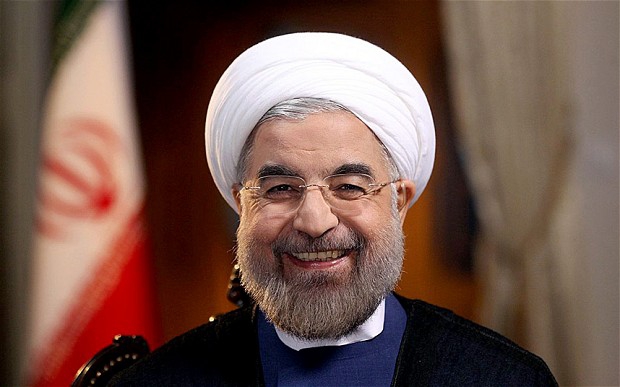 Iran's notorious morality police have been barred from arresting women deemed to be immodestly dressed, as President Hassan Rouhani moved to fulfil an election promise to ease up on the country's strict Islamic dress code.
Iran's notorious morality police have been barred from arresting women deemed to be immodestly dressed, as President Hassan Rouhani moved to fulfil an election promise to ease up on the country's strict Islamic dress code.Mr Rouhani, who has displayed a more moderate bent than his hardline predecessor since taking office in June, has moved to reign in the Gashte Ershad (Guidance Patrol), that has been a trademark of the Islamic Republic since its inception in 1979.
He has ordered the Iranian police to hand over the "modesty project" to the Ministry of Interior, a move interpreted as a relaxation of the restrictive Islamic mores that have long governed personal behaviour, particularly that of women.
Brigadier Ismail Ahmadi-Moghaddam, the head of the Iranian police, said the issue of how women and men dressed was no longer a matter of law enforcement.
"The government has decided to hand over this issue to a social council which is currently organising its manpower and objectives and we will continue being available in any capacity as they may require us." Brig Ahmadi-Moghaddam said. But he complained that the police force had been "solely blamed" for the campaign, noting that it was not the only agency involved.
More than 26 government agencies have been working on the Gashte Ershad project, with millions of dollars put at their disposal. As well as official "morality police" units, bands of volunteer enforcers - branded vigilante thugs by critics - have sprung up around the campaign, often blamed for some of the worst excesses against perceived offenders.
Many Iranian sociologists and politicians admit that after decades of harsh policies, it has failed to force the Iranian women into accepting its guidelines.
During his election campaign Mr Rouhani had pledged that under his administration Iranian women "would be safe from harassment on the streets and enjoy real security".
"Do I disagree with the way our women are asked to be modestly dressed in public? I certainly do," he said. "Modesty is beyond wearing the hijab. The way the vigilantes interpret the question of modesty antagonises our society and has negative results which is contrary to the teaching of Islam and is unconstitutional."
By The Telegraph
The Iran Project is not responsible for the content of quoted articles.











